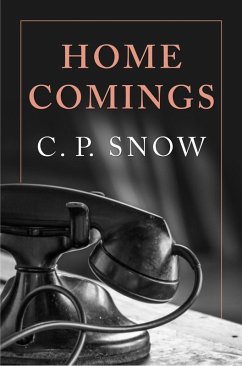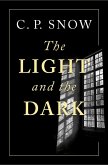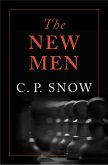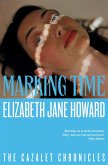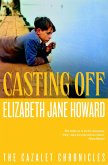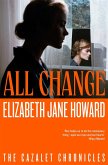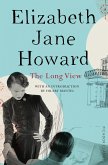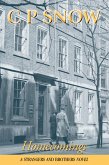The personal life of Lewis Eliot, the central figure and narrator of C. P. Snow's Strangers and Brothers, takes centre stage in this moving account of his wartime years.
The suicide of Lewis's desperately vulnerable wife, Sheila, ends a marriage fraught with difficulty and pain and shakes his world to the foundations. As Britain enters the Second World War he is swept up into the civil service, and meets Margaret Davidson, a woman who may offer him emotional redemption - but who is already married.
With its exceptionally sensitive and insightful exploration of the human condition, Homecomings demonstrates C. P. Snow's masterly insight into character, whether in the home or along the corridors of power.
A meticulous study of the public issues and private problems of post-war Britain, C. P. Snow's Strangers and Brothers sequence is a towering achievement that stands alongside Anthony Powell's A Dance to the Music of Time as one of the great romans-fleuves of the twentieth century.
Praise for the Strangers and Brothers sequence
"Together, the sequence presents a vivid portrait of British academic, political and public life. Snow was that rare thing, a scientist and novelist." Jeffrey Archer, Guardian
"Balzacian masterpieces of the age" Philip Hensher, Telegraph
"Through [the Strangers and Brothers sequence] as in no other work in our time we have explored the inner life of the new classless class that is the 20th century Establishment" New York Times
"A very considerable achievement ... It brings into the novel themes and locales never seen before (except perhaps in Trollope)." Anthony Burgess
The suicide of Lewis's desperately vulnerable wife, Sheila, ends a marriage fraught with difficulty and pain and shakes his world to the foundations. As Britain enters the Second World War he is swept up into the civil service, and meets Margaret Davidson, a woman who may offer him emotional redemption - but who is already married.
With its exceptionally sensitive and insightful exploration of the human condition, Homecomings demonstrates C. P. Snow's masterly insight into character, whether in the home or along the corridors of power.
A meticulous study of the public issues and private problems of post-war Britain, C. P. Snow's Strangers and Brothers sequence is a towering achievement that stands alongside Anthony Powell's A Dance to the Music of Time as one of the great romans-fleuves of the twentieth century.
Praise for the Strangers and Brothers sequence
"Together, the sequence presents a vivid portrait of British academic, political and public life. Snow was that rare thing, a scientist and novelist." Jeffrey Archer, Guardian
"Balzacian masterpieces of the age" Philip Hensher, Telegraph
"Through [the Strangers and Brothers sequence] as in no other work in our time we have explored the inner life of the new classless class that is the 20th century Establishment" New York Times
"A very considerable achievement ... It brings into the novel themes and locales never seen before (except perhaps in Trollope)." Anthony Burgess
Dieser Download kann aus rechtlichen Gründen nur mit Rechnungsadresse in A, B, BG, CY, CZ, D, DK, EW, E, FIN, F, GR, HR, H, IRL, I, LT, L, LR, M, NL, PL, P, R, S, SLO, SK ausgeliefert werden.

